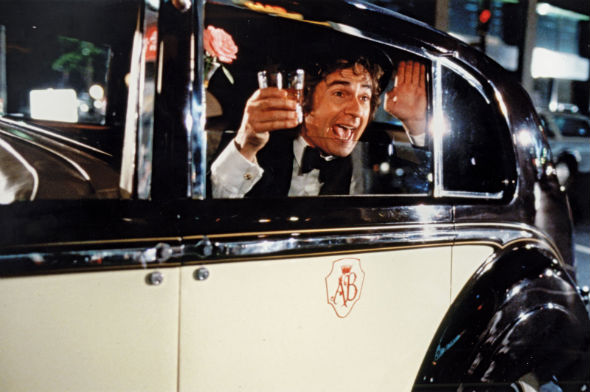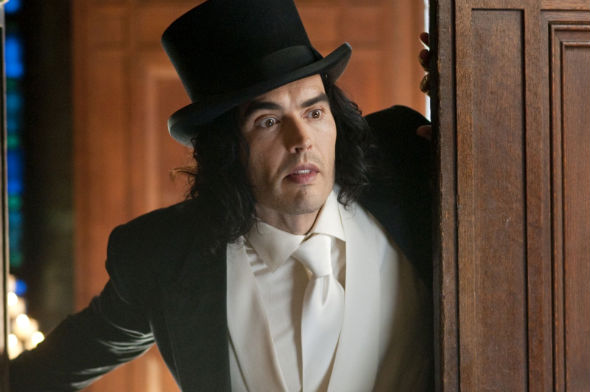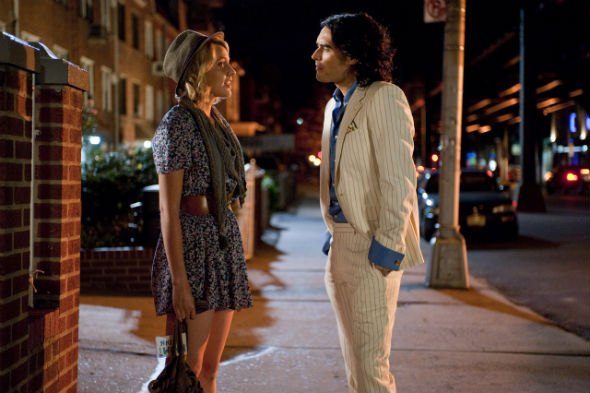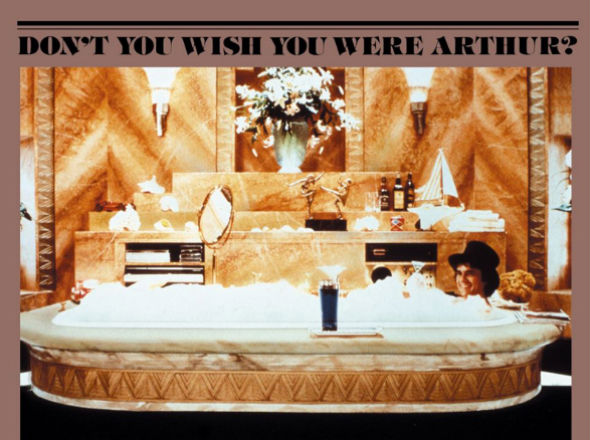For Remake’s Sake: Arthur (1981) / Arthur (2011)
Of the films explored in this series, 1981’s “Arthur” seems the most appropriate to remake. Starring Dudley Moore, in what would be his most iconic role, “Arthur” follows the misadventures of the titular hapless drunk whose immense fortune and desperate alcoholism has left him alone and distanced from the rest of the world.
As the film begins, we see that Arthur receives most of his companionship from New York City’s most indistinguishable ladies of the night, taking them to lavish restaurants and cavorting them as if it was a game. With no ambition, Arthur is often drunk, spending much of his time with his best friend in the world, his crude and stationed butler Hobson, played with a biting sarcasm by the great John Gielgud.
Fed up with his daft and drunken antics, Arthur’s father gives his son an ultimatum: marry Susan Johnson and become a respectable family man, keeping his large inheritance intact, or continue down this rocky path of inebriation and lose everything. Faced with a life with no money and thus, presumably, without happiness, Arthur agrees to marry Susan Johnson, a woman he finds difficult to even be around.
So naturally after making this arrangement, Arthur meets the girl of his dreams, the down to earth and crafty Linda, played by Liza Minelli. Now in a predicament, Arthur must make a decision as to what truly makes him happy.

Dudley Moore, as Arthur, trolling the streets of New York
The 80’s were a different time for film-making, one where craftsmanship was still on the rise but not as eagerly explored or perceived as in the decade that followed. And while “Arthur” may not be a technically enlightening film, it achieves levels of sincere compassion and genuine hilarity, thanks mainly to the outstanding Dudley Moore.
Moore balances his loud, immensely cheerful drunk with a sad and downtrodden sobriety, giving Arthur the dimensions he so rightly deserves. He wants to live and does so by getting hammered and taking nothing seriously, instead focusing on the divine comedy that is life, which often brings even more separation between him and the less humorous world. The film also carries a surprising thematic weight, somewhat glorifying the excess of the 80’s but also bringing into question the value and humanity of wealth and its prescription of loneliness.
Fast-forward thirty years later, when wealth has a whole new meaning and alcoholism is better understood and seen in a less comedic light. With remakes abound it seemed only a matter of time before someone got their hands on this small gem, whose themes are still relevant but whose audience has long dwindled, and adapt it for a more current-minded society.
2011’s “Arthur” received a lot of unnecessary flack and the film’s star, Russell Brand, took a critical bashing for not being able to carry his own film. Both of these seemed to deter audiences, which is a shame because while the movie is flawed it isn’t nearly as bad as most films released in a given year.
The story is pretty much the same with the biggest difference being the gender swap of Hobson, who is now a woman and played sternly but with the same dash of sarcasm by Helen Mirren. Brand is an excellent choice to channel a drunken playboy who would rather sleep and urinate on beautiful women than have any inkling of an “appropriate” life.
But while Dudley Moore’s Arthur was round and layered, Brand seems to keep his on one level, which isn’t bad but doesn’t lend the audience the same insight that Moore brought so well and with such conviction. Whether he is drunk or sober Brand plays it the same and as outrageous as ever, never drawing comparisons between his drunken id and his admittedly less seen sober self.
Moore achieved so much in the difference between his character drunk as supposed to when he was on the wagon, and while Brand was right not to copy Moore’s performance, he should have taken note to the balance and difference between the two Arthur’s, creating a rich character instead of a still and shaded reflection.

Russell Brand takes on Arthur
Brand is a talented man and it would be a real treat to see him in a role that doesn’t require him to be a drug addict, recovering drug addict, alcoholic, or recovering alcoholic but rather one that really makes him stretch and work for the emotional connectivity between himself, the character and the audience.
He is capable of such feats, for he has offered glimpses of greatness in other roles, and I think it would benefit his career if he showed the world his range and capabilities as an actor rather than playing interpretations of himself.
Helen Mirren is comparable to Gielgud in the sense that she embodies the same brash personality, but Gielgud was so good as the bitter but loving Hobson that anybody trying to fill his shoes will never reach the same level of success simply because he achieved it first and with such tact.
And while Liza Minelli was the weak link in an otherwise well-casted film, Greta Gerwig takes on the same role, this time named Naomi, with a sublime convincingness that makes it easy to see why her career is steadily climbing. In a few years she will be the go-to actress for deep and challenging roles.

Gerwig and Brand in 2011's "Arthur"
She is a modern woman and captures those emotions, or sometimes lack of emotions, so innately that she makes acting look easy, as if she was making up her lines as she went along.
What was missing overall in the remake was a true glimpse of theme, which seemed to slip by the wayside in favor of following a story. The exploration loneliness, the dissection of wealth and the perception of happiness are still touched on in the new “Arthur” but not as passionately or auspiciously as the 1981 version.
The remake isn’t bad and while it doesn’t offer any new insights into character development, storytelling, or film-making it is a delightfully simple and charming film, much like, but not as enlivening as, the original.

